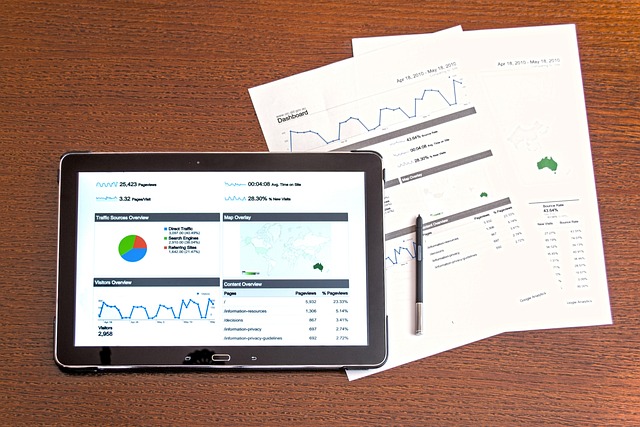AI is transforming sales forecasting by leveraging vast data and insights, enhancing accuracy. A prominent application is AI-powered delivery route planning, which optimizes logistics for e-commerce based on real-time data like traffic and package priority, improving efficiency and customer satisfaction. As AI advances, its integration into businesses will unlock new potential through data-driven decisions. Implementing AI solutions requires strategic steps: identify areas for impact (e.g., delivery routes), prepare clean data, choose suitable AI tools, foster collaboration, and provide training for effective integration.
In today’s data-driven world, AI business sales forecasting solutions are revolutionizing operations. This article explores how artificial intelligence (AI) transforms sales predictions, offering unprecedented accuracy and insights. From understanding AI’s role in forecasting to implementing seamless integration strategies, we delve into key areas like AI-powered delivery route planning, enhancing operational efficiency and profitability. By leveraging these advanced tools, businesses can make informed decisions, optimize resources, and achieve remarkable growth.
- Understanding AI's Role in Sales Forecasting: Unlocking Business Potential
- AI-Powered Delivery Route Planning: Optimizing Operations and Boosting Accuracy
- Implementing AI Solutions: Strategies for Seamless Integration and Maximum Impact
Understanding AI's Role in Sales Forecasting: Unlocking Business Potential

Artificial Intelligence (AI) is transforming sales forecasting, offering businesses unprecedented insights and accuracy. By analyzing vast datasets, historical trends, market dynamics, and even customer behavior, AI algorithms can predict sales performance with remarkable precision. This capability is particularly valuable in complex industries where traditional manual forecasting methods struggle to keep pace.
One prominent application of AI in sales forecasting is AI-powered delivery route planning. In logistics and e-commerce, for instance, AI algorithms can optimize delivery routes, considering factors like traffic patterns, weather conditions, and package priority. This not only enhances operational efficiency but also improves customer satisfaction by ensuring timely deliveries. As AI continues to evolve, its integration into sales forecasting processes will unlock new levels of business potential, enabling organizations to make data-driven decisions and stay ahead in a competitive market.
AI-Powered Delivery Route Planning: Optimizing Operations and Boosting Accuracy

In today’s fast-paced business landscape, efficient logistics and delivery operations are paramount to success. This is where AI-powered delivery route planning steps in as a game-changer. By leveraging machine learning algorithms and vast datasets, these intelligent systems can optimize routes in real-time, taking into account various factors such as traffic conditions, package weights, and delivery priorities. This not only ensures timely deliveries but also reduces operational costs by minimizing fuel consumption and driver fatigue.
The accuracy of route planning is significantly enhanced through AI, leading to better service levels and customer satisfaction. By predicting potential delays and identifying the most efficient paths, businesses can anticipate demands and ensure their resources are allocated effectively. This proactive approach allows companies to streamline their operations, making them more responsive and competitive in a dynamic market.
Implementing AI Solutions: Strategies for Seamless Integration and Maximum Impact

Implementing AI solutions, particularly in sales forecasting and business operations, requires a strategic approach for seamless integration and maximum impact. The first step is to identify specific areas within your sales process where AI can make a difference. For instance, AI-powered delivery route planning can optimize logistics, reducing costs and improving customer satisfaction by minimizing travel time and distance. This often involves data collection and preparation, ensuring that historical and real-time sales data, market trends, and other relevant information are clean, organized, and easily accessible.
Once the groundwork is laid, choose AI tools tailored to your needs. Machine learning algorithms and natural language processing can analyze vast datasets to identify patterns and make accurate forecasts, enhancing decision-making. Seamless integration demands a collaborative effort between IT teams, sales professionals, and business leaders. Regular training and upskilling ensure that all stakeholders understand the capabilities and limitations of AI, fostering effective co-creation and adoption.
AI business sales forecasting solutions, including AI-powered delivery route planning, are transforming operations with enhanced accuracy and optimized efficiency. By understanding AI’s role in sales forecasting and implementing strategic integration, companies can unlock significant potential, revolutionize their processes, and gain a competitive edge. These solutions not only streamline operations but also provide valuable insights for better decision-making, ensuring long-term success in today’s fast-paced business landscape.
